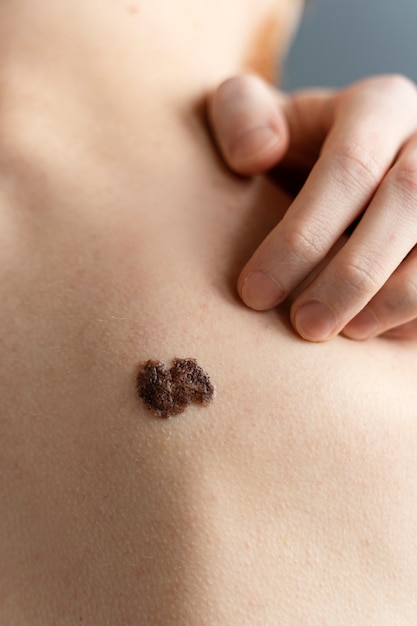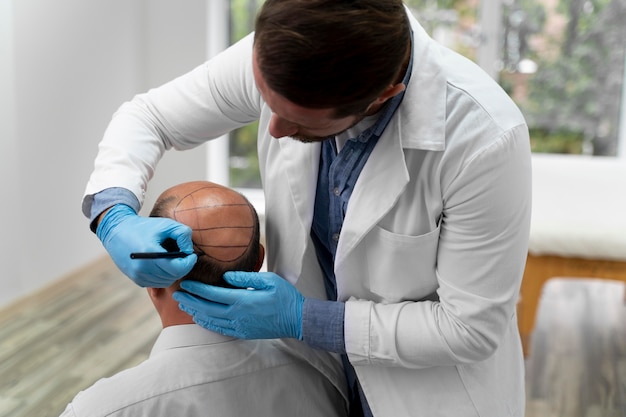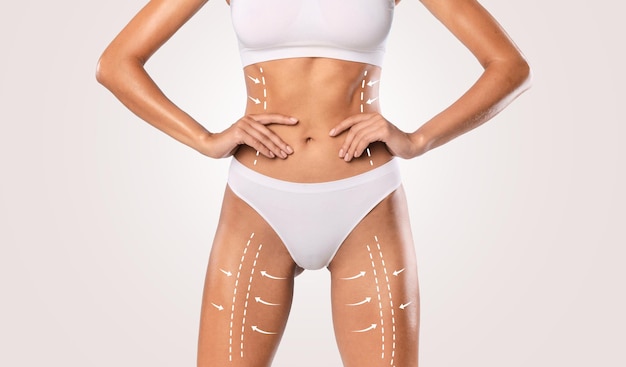Can warts removal a permanent procedure

Warts are a common skin condition caused by the human papillomavirus (HPV). While they are generally harmless, warts can be unsightly and uncomfortable, leading many individuals to visit a dermatologist for Warts Removal in Dubai. For those who have experienced warts, the question often arises: Can warts removal be a permanent procedure?
Warts and Their Causes
Warts are growths on the skin caused by certain strains of the human papillomavirus (HPV). This virus infects the outer layer of the skin and causes the skin cells to multiply rapidly, resulting in the raised, rough bumps that are characteristic of warts. While warts are generally non-cancerous and often go away on their own, they can be persistent and sometimes spread to other areas of the body or to other people.
There are several types of warts, including:
- Common warts: Usually found on the hands, fingers, or elbows.
- Plantar warts: Appearing on the soles of the feet.
- Flat warts: Smaller and smoother, often found on the face or legs.
- Genital warts: Occurring in the genital and anal areas.
Warts are contagious, which means that they can spread through direct contact with an infected person or by touching surfaces that have come into contact with the virus, such as towels, shoes, or gym equipment.
Warts Removal Methods
When warts cause discomfort or cosmetic concerns, individuals often seek various treatment options to remove them. There are several effective methods available for wart removal, but it’s important to understand that not all treatments provide permanent results, and the success of the procedure depends on several factors.
1. Cryotherapy (Freezing)
Cryotherapy is one of the most common methods used for wart removal. It involves freezing the wart with liquid nitrogen, which causes the tissue to die and the wart to fall off. This procedure can be done in a healthcare provider’s office or sometimes at home using over-the-counter freezing products.
Effectiveness:
Cryotherapy can be effective in removing warts, especially if they are small or in early stages. However, it might take several sessions to completely remove the wart, and in some cases, the wart may return if not entirely eradicated. In certain cases, the virus may remain in the skin, causing warts to recur.
Permanent Results:
While cryotherapy is an effective treatment, it does not guarantee permanent removal of warts. The HPV virus that causes warts may remain in the skin and could cause new warts to appear, even after the existing ones have been removed.
2. Laser Treatment
Laser treatment for warts involves using a focused beam of light to target and destroy the wart tissue. This method is often used for warts that are deep-rooted, difficult to treat, or resistant to other methods. The laser works by burning the blood vessels feeding the wart, causing it to shrink and eventually fall off.
Effectiveness:
Laser treatment can be very effective for stubborn warts that do not respond to other treatments. The procedure is precise and can remove warts in a single session. However, like other treatments, it may not guarantee complete eradication of the virus.
Permanent Results:
Although laser treatment can provide a high rate of success in removing warts, the virus that causes them may still remain in the skin. Therefore, there is a possibility that new warts may form in the future, making the results less permanent.
3. Surgical Removal
Surgical removal involves physically cutting out the wart using a scalpel or surgical scissors. This method is typically used for large warts or warts that have not responded to other treatments. The procedure is usually done under local anesthesia to minimize discomfort.
Effectiveness:
Surgical removal is a highly effective method for removing warts. It provides immediate results and is particularly useful for warts that are resistant to other treatments. However, the recovery period can be longer compared to other methods, and there is a small risk of scarring or infection.
Permanent Results:
Surgical removal can offer a more permanent solution compared to other methods, as the wart tissue is physically removed from the skin. However, if the HPV virus remains in the skin, new warts could develop in the future. This makes surgical removal a more effective but not fully permanent solution.
4. Salicylic Acid Treatment
Salicylic acid is an over-the-counter treatment available in the form of liquids, gels, or adhesive pads. This chemical works by gradually dissolving the wart tissue. It is applied directly to the wart over a period of weeks. Salicylic acid is often used for common warts and plantar warts.
Effectiveness:
Salicylic acid can be effective in removing warts, especially when used consistently over time. The treatment is relatively inexpensive and can be done at home, making it a convenient option for many people. However, it can take several weeks of consistent use to see results.
Permanent Results:
Salicylic acid treatment can provide a long-lasting solution if the wart is fully removed and the virus is eradicated from the skin. However, there is still a chance that the wart could return if the virus remains active, making this treatment effective but not guaranteed to be permanent.
5. Immunotherapy
Immunotherapy is a treatment that stimulates the body’s immune system to fight the virus causing the wart. This may involve the application of a topical medication or injections of substances like interferon, which help the immune system recognize and destroy the virus.
Effectiveness:
Immunotherapy is often used for warts that are difficult to treat with other methods, such as genital warts or warts on the face. This treatment can be highly effective, especially when used alongside other wart removal techniques.
Permanent Results:
Immunotherapy works by boosting the body’s natural defenses, making it a potential long-term solution. However, there is always a chance that warts could recur if the virus is not entirely eliminated, so while immunotherapy can lead to long-lasting results, it is not always permanent.
Can Warts Removal Be a Permanent Procedure?
The effectiveness and permanence of wart removal depend on multiple factors, including the treatment method used, the type of wart, and whether the HPV virus has been fully eliminated from the skin.
While methods like cryotherapy, laser treatment, and surgical removal can effectively remove warts, they do not always guarantee permanent results. The reason for this is that the human papillomavirus (HPV), which causes warts, can remain dormant in the skin even after the wart is removed. As a result, new warts may form at a later time, even if the original wart has been successfully treated.
Salicylic acid and immunotherapy treatments can be effective in removing warts, but like other methods, they do not offer an absolute guarantee of permanence. In some cases, warts may reappear after treatment, especially if the virus remains in the skin.
In conclusion, while warts removal procedures can effectively remove existing warts, they do not always guarantee that the warts will not return. The key to preventing warts from reappearing is to follow up with the right aftercare and take preventive measures to reduce the chances of re-infection. This includes practicing good hygiene, avoiding contact with warts, and boosting the immune system to fight off any residual HPV that might cause new warts to form.
Conclusion
Warts can be bothersome, but there are a variety of treatments available to remove them. However, it is important to understand that no wart removal procedure can guarantee permanent results. While methods like cryotherapy, laser treatments, and surgery can provide effective wart removal, the presence of the HPV virus means that new warts may form in the future.
To achieve the best possible outcome, it is essential to follow the advice of a healthcare professional and maintain good aftercare practices. If warts continue to recur, seeking ongoing medical advice or trying different treatment approaches may be necessary.
Ultimately, while warts removal can be highly effective in providing long-term relief, it is not always a permanent procedure, as the virus responsible for warts may remain in the skin. Regular monitoring and care are essential for ensuring that warts do not reappear and for maintaining healthy skin.
Note: IndiBlogHub features both user-submitted and editorial content. We do not verify third-party contributions. Read our Disclaimer and Privacy Policyfor details.







